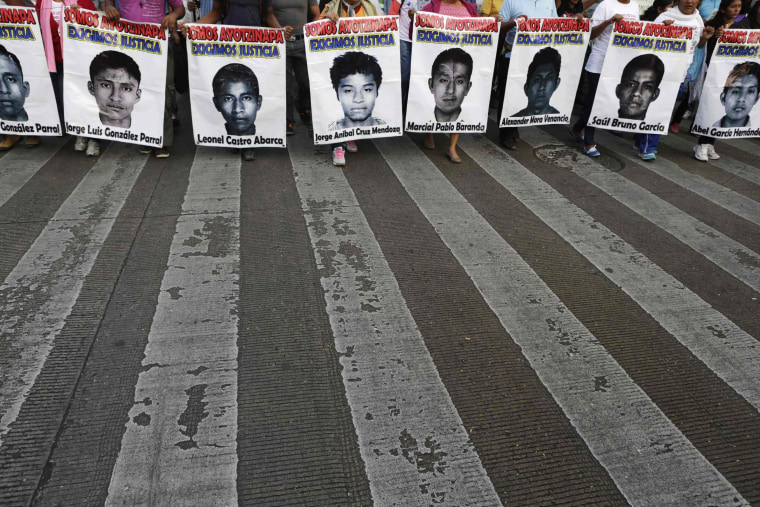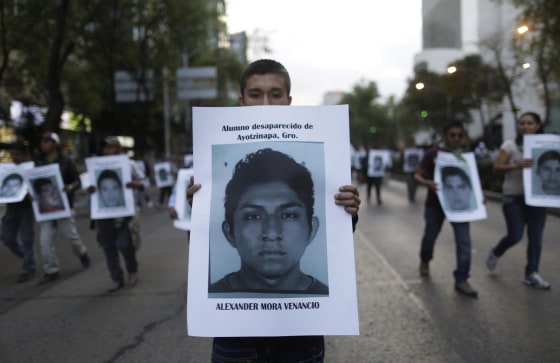Mexico's National Human Rights Commission has issued a list of 32 omissions in the government's investigation into what happened to 43 missing college students who investigators say were killed and incinerated last September.
The commission also issued recommendations that it said are critical to solving the case.
The report listed key people and evidence, including a cellphone message from a student that was never pursued following the Sept. 26 attacks in the southern city of Iguala.
"All of the things listed are not in the case file, and so in our view have not been done. And they are things very important to the case," commission President Luis Raul Gonzalez Perez said.
The human rights' group recommendations come after the Attorney General's Office gave its official version of what happened in January, which left the families of the students and many in the country questioning the thoroughness of the investigation.
RELATED: Families of 43 Missing Mexican College Students Embark on U.S. Tour
The Attorney General's Office said only that it had received the report and did not comment on its criticisms; it also said they were committed to an exhaustive and transparent investigation.
The Attorney General's Office says the students, on their way to a protest, were arrested by local police and handed over to a drug cartel, which killed and incinerated them at a garbage dump. Their remains were allegedly put in garbage bags and dumped in a nearby river.
The Human Rights commission lists people allegedly involved at the dump who were never arrested and it calls for interviews with navy divers who allegedly found remains in the river. The report suggests investigators never established if the remains found at the river were human or animal, and recommends interviews with people living near where the attacks took place in Iguana - a seemingly basic step.

It also says authorities never did forensic tests on clothing found near the buses where the attacks occurred.
The report also says the students' families never received proper medical and psychological support and still live amid the same crime and insecurity that led to the disappearances, which the attorney general said involved a drug cartel working with local police.
The case of the missing 43 students reverberated internationally and caused outrage worldwide over the collusion between criminals and law enforcement authorities that led to the disappearances.
Federal investigators have identified only one of the missing students in the charred remains that they say were found at the river. The other remains and ashes carried no identifiable DNA.
"What we're pointing out, as we've said before, is that the attorney general's investigation should not be closed and is not closed," Gonzalez said.
Later Thursday, the governmental Executive Commission on Attention to Victims said it accepted the rights commission's recommendations for supporting victims and their families and would immediately work to implement them.
